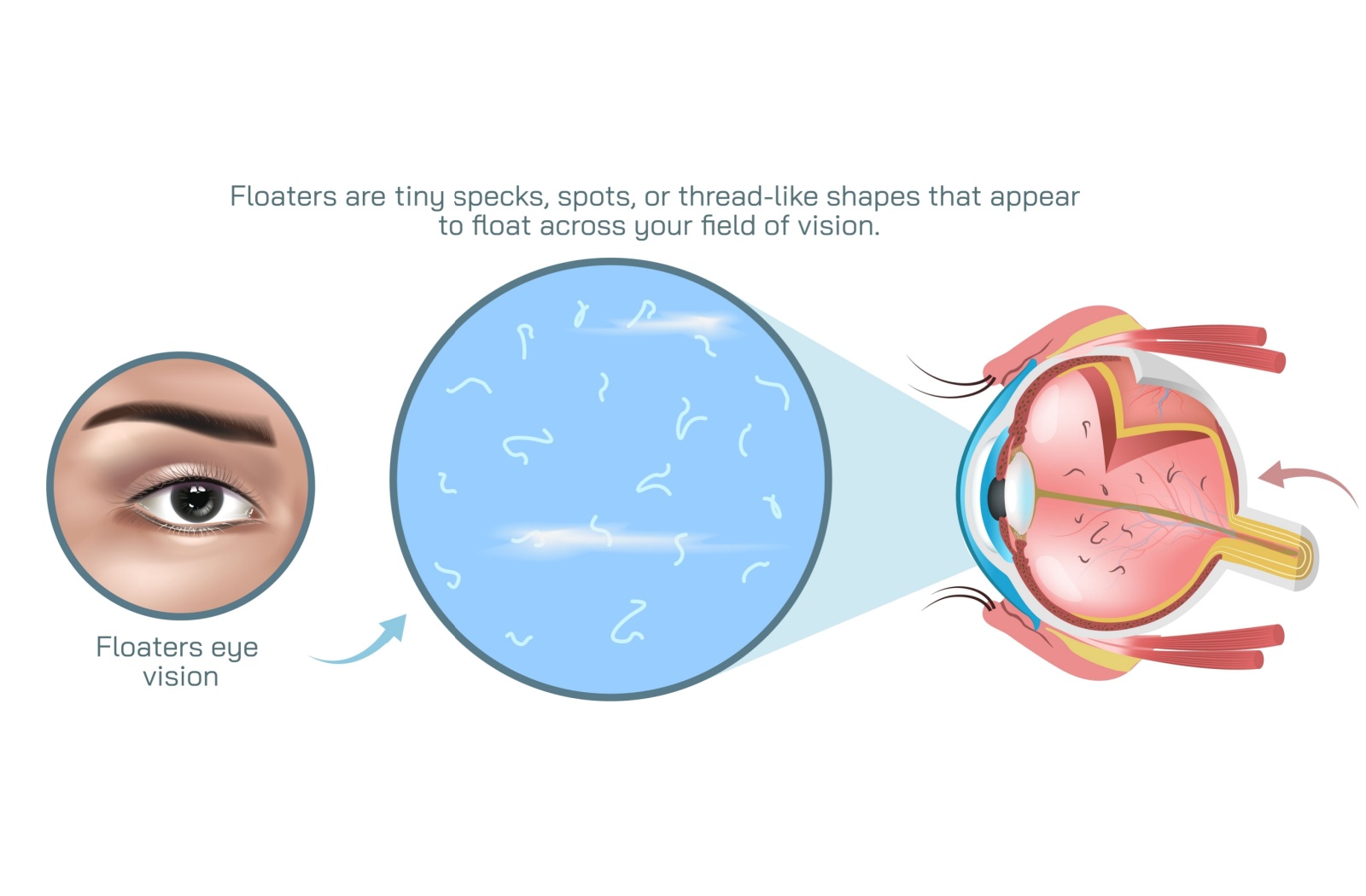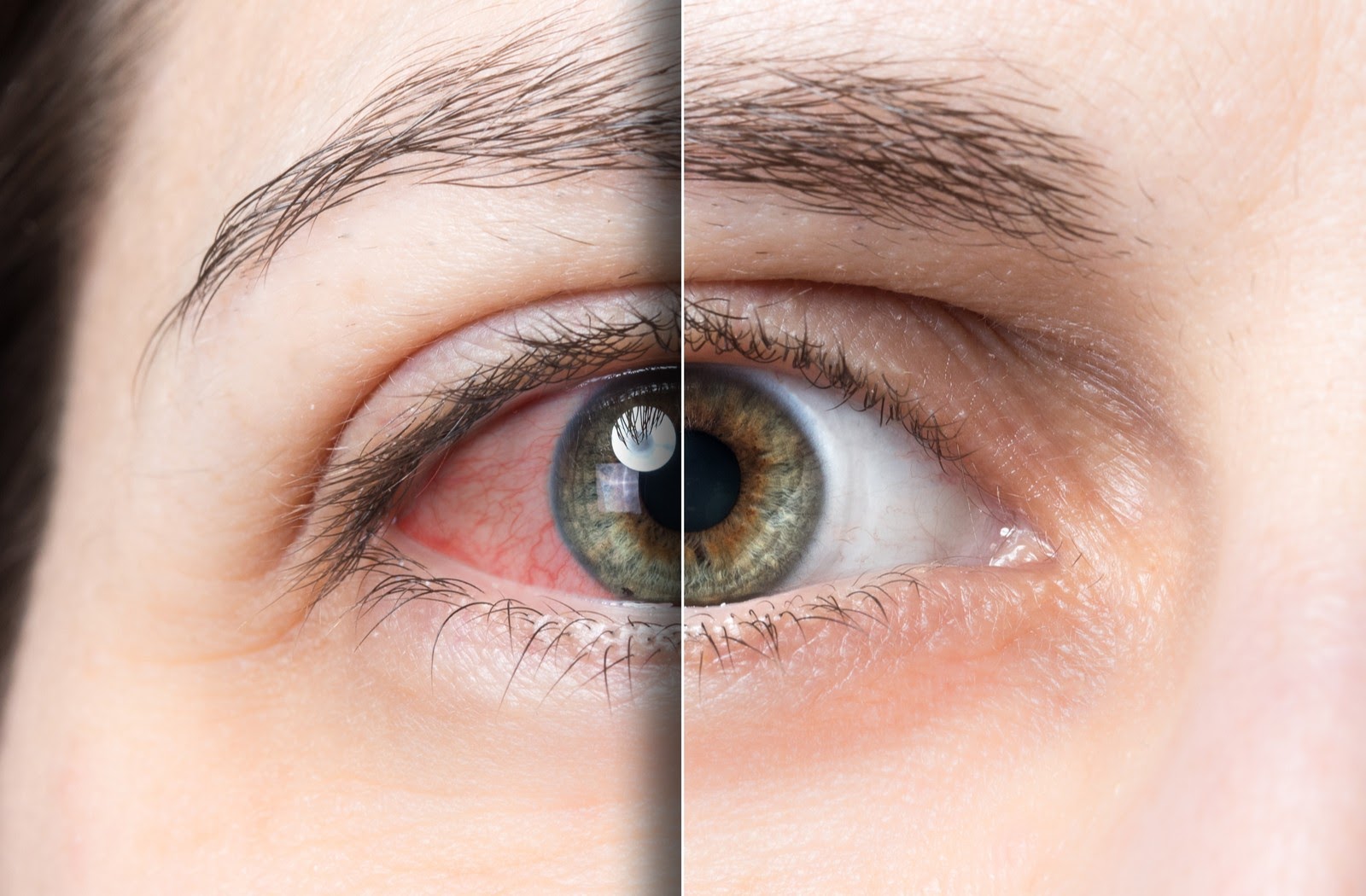When it comes to eye health, understanding the nuances can be a bit challenging. Two common issues often discussed are dry eyes and floaters. But can these two be interconnected? Let’s explore.
What are Dry Eyes?
Dry eyes occur when your eyes don’t produce enough tears or the tears evaporate too quickly. This can lead to discomfort, redness, and a gritty sensation in the eyes. Common causes include prolonged screen time, environmental factors, and wearing contact lenses for too long.
Symptoms of Dry Eyes
- Burning or stinging sensation
- Sensitivity to light
- Blurred vision
- Redness
- Feeling like something is in your eye
What are Floaters?
Floaters are small specks or clouds that move in your field of vision. They are caused by tiny clumps of collagen fibres or cells inside the vitreous humor, the clear gel-like fluid that fills the inside of your eye. Floaters are more noticeable when looking at something bright, like a clear sky or a white screen.
Symptoms of Floaters
- Black or gray specks floating in vision
- Strings or cobweb-like lines that drift with eye movement
- Spots that move away when you try to look at them directly
Can Dry Eyes Cause Floaters?
While both dry eyes and floaters affect your vision, they are not directly related. Dry eyes impact the surface of the eye, leading to discomfort and irritation, whereas floaters are related to changes inside the eye’s vitreous humor. Therefore, dry eyes do not cause floaters.
However, it’s worth noting that both conditions can be exacerbated by similar factors such as aging and eye strain, leading some to mistakenly link the two.
How to Prevent Dry Eyes
Preventing dry eyes involves maintaining proper hydration and protecting your eyes from irritants. Here are some tips:
- Take Breaks from Screens: Follow the 20-20-20 rule—every 20 minutes, look at something 20 feet away for at least 20 seconds.
- Use a Humidifier: Keep the air moist in your home, especially during dry seasons.
- Hydrate: Drink plenty of water throughout the day to keep your body, and eyes, hydrated.
- Use Artificial Tears: Lubricating eye drops can help maintain moisture on the outer surface of your eyes.

How to Prevent Floaters
While floaters can’t be prevented, you can maintain overall eye health to reduce the risk of developing them:
- Regular Eye Exams: Early detection can prevent more serious issues.
- Protect Your Eyes: Wear sunglasses outdoors to protect your eyes from UV rays.
- Maintain a Healthy Diet: Foods rich in vitamins A, C, and E, as well as omega-3 fatty acids, support eye health.
- Stay Physically Active: Regular exercise improves circulation, which can be beneficial for eye health.
When to See an Optometrist
If you experience any sudden changes in your vision, including a sudden increase in floaters, flashes of light, or any significant vision changes, it’s crucial to seek professional advice immediately. These can be signs of more serious conditions like retinal detachment.
Persistent or severe dry eyes should also be assessed by an optometrist, as they may suggest underlying health concerns or require prescription treatment.
Understanding the differences and connections between various eye health issues is key to maintaining optimal eye health. While dry eyes and floaters might not be directly linked, keeping an eye on both can ensure that your vision stays clear and comfortable.
Visit Our Eye Health Professionals
If you have any concerns about your eye health, always consult with a qualified eye care professional. Our team here at Cowichan Eyecare is at your service, and look forward to helping you see the world clearly again.



















